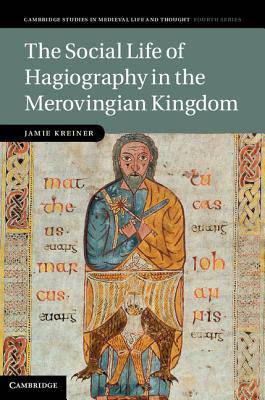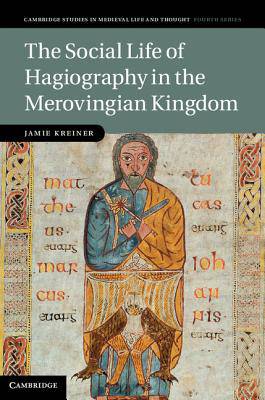
Je cadeautjes zeker op tijd in huis hebben voor de feestdagen? Kom langs in onze winkels en vind het perfecte geschenk!
- Afhalen na 1 uur in een winkel met voorraad
- Gratis thuislevering in België vanaf € 30
- Ruim aanbod met 7 miljoen producten
Je cadeautjes zeker op tijd in huis hebben voor de feestdagen? Kom langs in onze winkels en vind het perfecte geschenk!
- Afhalen na 1 uur in een winkel met voorraad
- Gratis thuislevering in België vanaf € 30
- Ruim aanbod met 7 miljoen producten
Zoeken
The Social Life of Hagiography in the Merovingian Kingdom
Jamie Kreiner
€ 183,45
+ 366 punten
Uitvoering
Omschrijving
This book charts the influence of Christian ideas about social responsibility on the legal, fiscal and operational policies of the Merovingian government, which consistently depended upon the collaboration of kings and elites to succeed, and it shows how a set of stories transformed the political playing field in early medieval Gaul. Contemporary thinkers encouraged this development by writing political arguments in the form of hagiography, more to redefine the rules and resources of elite culture than to promote saints' cults. Jamie Kreiner explores how hagiographers were able to do this effectively, by layering their arguments with different rhetorical and cognitive strategies while keeping the surface narratives entertaining. The result was a subtle and captivating literature that gives us new ways of thinking about how ideas and institutions can change, and how the vibrancy of Merovingian culture inspired subsequent Carolingian developments.
Specificaties
Betrokkenen
- Auteur(s):
- Uitgeverij:
Inhoud
- Aantal bladzijden:
- 342
- Taal:
- Engels
- Reeks:
- Reeksnummer:
- nr. 96
Eigenschappen
- Productcode (EAN):
- 9781107050655
- Verschijningsdatum:
- 3/04/2014
- Uitvoering:
- Hardcover
- Formaat:
- Genaaid
- Afmetingen:
- 150 mm x 231 mm
- Gewicht:
- 612 g

Alleen bij Standaard Boekhandel
+ 366 punten op je klantenkaart van Standaard Boekhandel
Beoordelingen
We publiceren alleen reviews die voldoen aan de voorwaarden voor reviews. Bekijk onze voorwaarden voor reviews.









